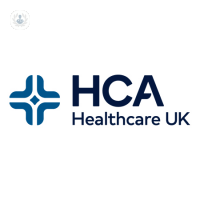What is it?
Dyslipidaemia involves unhealthy levels of fat in your blood and can cause atherosclerosis.
This can include an elevation of cholesterol or triglyceride levels, or a decrease of high-density lipoprotein levels in the blood. High cholesterol levels, together with other lipid and metabolic disorders, may lead to increased cardiovascular risks.

Dyslipidaemias can be classified as follows:
- Hypercholesterolemia: an increase in cholesterol levels
- Hypertriglyceridemia: an increase in triglyceride levels
- Hyperlipidaemia: a combined increase in both cholesterol and triglyceride levels
What are the symptoms?
Dyslipidaemias are generally asymptomatic and are diagnosed due to the conditions they contribute to, such as coronary heart disease, ischemia, peripheral arterial disease, pancreatitis and tendinous xanthomas.
Dyslipidaemias can also cause altered sensation in the limbs, shortness of breath, or a feeling of disorientation.
How is it diagnosed?
Dyslipidaemia is diagnosed by taking a blood test and checking triglyceride and cholesterol levels in the blood. It may also be necessary to measure glucose levels, TSH (Thyroid-Stimulating Hormone) levels and the amount of protein in the urine.
What causes dyslipidaemia?
There are two main causes for dyslipidaemia:
- Primary (or genetic) causes: genetic disorders may lead to an excessive or insufficient production of cholesterol and triglycerides;
- Secondary causes: these may be linked to an unhealthy lifestyle, such as smoking and overconsumption of foods rich in cholesterol, trans-fats and saturated fats. Dyslipidaemias can also be caused by diabetes, kidney and liver conditions, hypothyroidism, HIV or certain kinds of medication.
How can it be prevented?
You can reduce your risk of dyslipidaemia by leading a healthy lifestyle, including:
- eating more fibre and complex carbohydrates
- decreasing your cholesterol and saturated fat intake
- exercising regularly
- maintaining a healthy weight
What is the treatment?
People affected by dyslipidaemia often need to be treated for hypertension and diabetes as well. In order to reduce cholesterol levels you may be given medication or food supplements.
Which doctor should I talk to?
If you think you may have dyslipidaemia, you can talk to a dietician. If you have diabetes you can also talk to your endocrinologist or diabetes specialist.
03-01-2017 01-10-2024Lipid disorders
Dr Ahmed Elghamaz - Cardiology
Created on: 03-01-2017
Updated on: 01-10-2024
Edited by: Conor Dunworth
What is it?
Dyslipidaemia involves unhealthy levels of fat in your blood and can cause atherosclerosis.
This can include an elevation of cholesterol or triglyceride levels, or a decrease of high-density lipoprotein levels in the blood. High cholesterol levels, together with other lipid and metabolic disorders, may lead to increased cardiovascular risks.

Dyslipidaemias can be classified as follows:
- Hypercholesterolemia: an increase in cholesterol levels
- Hypertriglyceridemia: an increase in triglyceride levels
- Hyperlipidaemia: a combined increase in both cholesterol and triglyceride levels
What are the symptoms?
Dyslipidaemias are generally asymptomatic and are diagnosed due to the conditions they contribute to, such as coronary heart disease, ischemia, peripheral arterial disease, pancreatitis and tendinous xanthomas.
Dyslipidaemias can also cause altered sensation in the limbs, shortness of breath, or a feeling of disorientation.
How is it diagnosed?
Dyslipidaemia is diagnosed by taking a blood test and checking triglyceride and cholesterol levels in the blood. It may also be necessary to measure glucose levels, TSH (Thyroid-Stimulating Hormone) levels and the amount of protein in the urine.
What causes dyslipidaemia?
There are two main causes for dyslipidaemia:
- Primary (or genetic) causes: genetic disorders may lead to an excessive or insufficient production of cholesterol and triglycerides;
- Secondary causes: these may be linked to an unhealthy lifestyle, such as smoking and overconsumption of foods rich in cholesterol, trans-fats and saturated fats. Dyslipidaemias can also be caused by diabetes, kidney and liver conditions, hypothyroidism, HIV or certain kinds of medication.
How can it be prevented?
You can reduce your risk of dyslipidaemia by leading a healthy lifestyle, including:
- eating more fibre and complex carbohydrates
- decreasing your cholesterol and saturated fat intake
- exercising regularly
- maintaining a healthy weight
What is the treatment?
People affected by dyslipidaemia often need to be treated for hypertension and diabetes as well. In order to reduce cholesterol levels you may be given medication or food supplements.
Which doctor should I talk to?
If you think you may have dyslipidaemia, you can talk to a dietician. If you have diabetes you can also talk to your endocrinologist or diabetes specialist.


What are lipid disorders?
By Professor Kausik Ray
2024-12-12
Lipid disorders are a range of conditions that result in abnormal elevations of different types of particles that carry fats in the blood. There are two main types of fats carried in the blood and we only need them in small amounts, high levels cause harm the longer they remain elevated. Professor Kausik Ray tells us a little bit more about lipid disorders and where they come from. See more


What are lipid disorders, and how can they be managed?
By Professor Riyaz Patel
2024-12-08
Here, highly experienced consultant cardiologist, Professor Riyaz Patel, details what lipid disorders are, whilst also telling us how exactly these disorders can affect us, as well as how they can be managed effectively. See more
Experts in Lipid disorders
-
Dr Yohan Samarasinghe
Internal medicineExpert in:
- Diabetes
- Hypertension (high blood pressure)
- Lipid disorders
- Preventive cardiology
- Metabolic syndrome
-
Dr Sukhjinder Nijjer
CardiologyExpert in:
- Hypertension (high blood pressure)
- Interventional cardiology
- Lipid disorders
- Palpitations
- Shortness of breath
- Angina
-
Professor Luigi Gnudi
Endocrinology, diabetes & metabolismExpert in:
- Diabetes
- Diabetic nephropathy
- Cardiovascular Medicine
- Obesity
- Lipid disorders
- Thyroid
-
Professor Riyaz Patel
CardiologyExpert in:
- Cardiac screening
- Family history of heart disease
- Heart check up
- Lipid disorders
- Preventive cardiology
- Cholesterol
-
Dr Mehdi Mirzazadeh
Internal medicineExpert in:
- Osteoporosis
- Kidney stones test
- Metabolic syndrome
- Hypercholesterolemia
- Lipid disorders
- Biomarkers
- See all

The Parkside Suite Frimley
The Parkside Suite Frimley
Frimley Park Hospital, Portsmouth Road, GU16 7UJ
No existe teléfono en el centro.
By using the telephone number provided by TOP DOCTORS, you automatically agree to let us use your phone number for statistical and commercial purposes. For further information, read our Privacy Policy
Top Doctors

OneWelbeck Heart Health
OneWelbeck Heart Health
1 Welbeck St, London, W1G 0AR
No existe teléfono en el centro.
By using the telephone number provided by TOP DOCTORS, you automatically agree to let us use your phone number for statistical and commercial purposes. For further information, read our Privacy Policy
Top Doctors

The Lister Hospital - part of HCA Healthcare
The Lister Hospital - part of HCA Healthcare
Chelsea Bridge Road, London
No existe teléfono en el centro.
By using the telephone number provided by TOP DOCTORS, you automatically agree to let us use your phone number for statistical and commercial purposes. For further information, read our Privacy Policy
Top Doctors
-
The Parkside Suite Frimley
Frimley Park Hospital, Portsmouth Road, GU16 7UJ, CamberleyExpert in:
- Cardiology
- Orthopaedic surgery
- Breast augmentation
- Dermatology
- Endocrinology
- Gastroenterology
-
OneWelbeck Heart Health
1 Welbeck St, London, W1G 0AR, W1G Marylebone LondonExpert in:
- Clinical analysis
- Arrhythmia
- Palpitations
-
The Lister Hospital - part of HCA Healthcare
Chelsea Bridge Road, London , Central LondonExpert in:
- Cancer
- Cardiology
- Orthopaedic surgery
- Pregnancy
- Physiotherapy
- Women’s health
- See all
- Most viewed diseases, medical tests, and treatments
- Electrophysiology study
- Hormone therapy
- Autoimmune diseases
- Joint pain
- Nutrition
- Genetic testing
- Abdominal pain
- Vaginal cytology
- Parkinson's disease
- Preconception care








